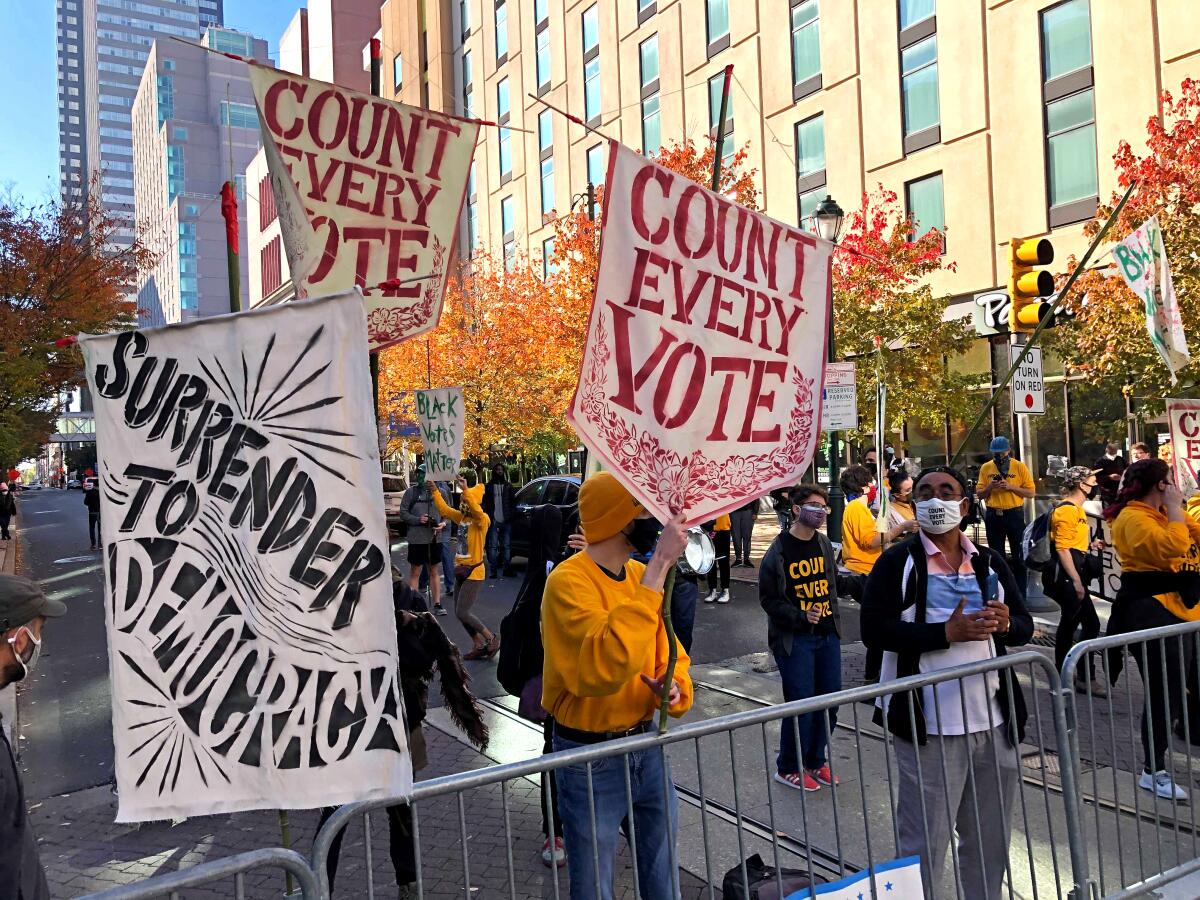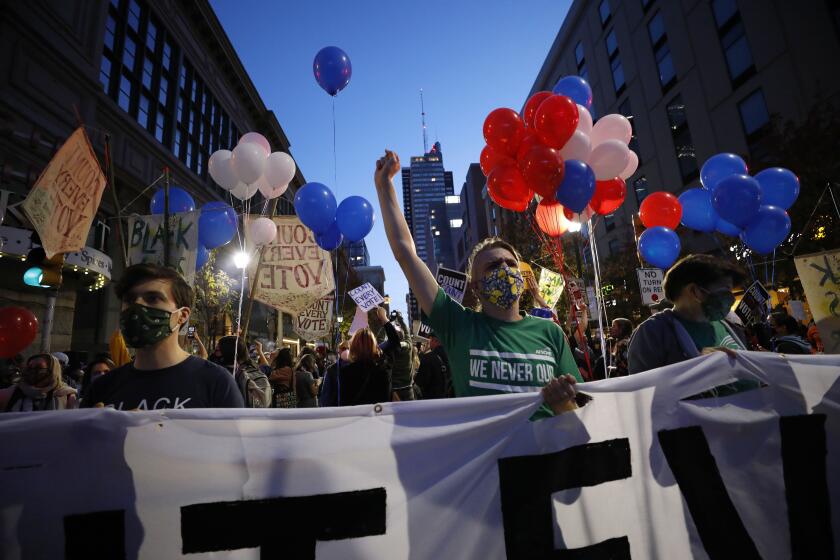What America should learn from this harrowing election

- Share via
The divisiveness of recent elections reveals that the American political system has been largely unable to communicate the preferences of growing multiethnic and urban constituencies in our society. The election on Tuesday was no exception, with the presidency hinging on a handful of states in which the national popular vote winner has razor-thin margins that will determine victory or defeat in the electoral college.
No matter the outcome of this election, the postmortem will involve assigning significant blame for what pundits had assumed would be a decisive election with a clear winner. Instead, it turned out to be a nail-biter in the few states that mattered. The pundits will blame the polls. They will accuse the campaigns of ignoring key constituencies. They will rant about the electoral college, which trumped the will of the people in 2000 and 2016.
However, all the blame game does is gloss over the key structural failure in our system of elections that, even in conditions of historic voter turnout, permits states to suppress that turnout and disenfranchise a significant number of voters for no good reason.
Voter suppression and disenfranchisement cannot be explained by a polling error or political strategy gone awry. This is a first-order issue of democratic legitimacy because states make it needlessly difficult for people to vote in a system that holds itself out as a democracy. As such, having more reliable polling or running more targeted campaigns won’t solve this problem. Neither will fixing the electoral college. Even if we let the people pick the president directly, some combination of states would still make it difficult for segments of their populations to cast ballots.
I fear that in the days to come, this election’s impact on the voters will be lost because important questions will go unasked and unanswered. For example, states have significant discretion over elections that has been used to suppress the votes of otherwise eligible citizens. The U.S. Supreme Court has thus far been unwilling to ease these burdens on voters, siding with state elections officials in a number of decisions that retain pre-COVID-19 requirements for casting a ballot. Despite the global pandemic, the Supreme Court has made it difficult for the lower courts to, for example, extend ballot receipt deadlines and relax witness requirements for absentee ballots. Will we discuss the need to curb this discretion? Or will we commend individuals for voting despite the barriers placed before them, while ignoring that one cannot count votes that were never cast because of these barriers?
Additionally, much of the post-election debate has involved claims that legally valid ballots should be discarded if they haven’t been counted by election day. Will we confront the hard reality that a significant portion of the population believes that lawful votes should not count? Or will we comfort voters with platitudes about civic responsibility when their votes are thrown out, even after thousands waited in line for hours to cast their ballots?
Election officials in several states are worried about the safety of their staffs amid a stream of threats and protesters who support President Trump.
The fact that the right to vote has been under siege in the 2020 election cycle has to be a focus of the postmortem on this election. In addition, reversing this trend of voter suppression and disenfranchisement needs to be the cornerstone of any strategy to improve our system of elections.
Even the best recommendations for electoral reforms will fail to achieve their true potential absent some remedy for voter suppression. One of the commendable accomplishment of this election cycle is that more Americans voted than in any presidential election in history. But arguably, turnout could have been higher if we allowed all eligible voters to cast ballots and if we counted those ballots accordingly. Yet, the story of America has always been one in which our democracy is deemed a success when voters can cast ballots in significant numbers, despite the artificial barriers to voting, the disenfranchisement of those who cannot overcome these barriers and the refusal of the courts to vindicate their rights.
Another commendable accomplishment is that America is on the verge of electing an individual to the vice presidency who reflects our ever-changing demographics. Sen. Kamala Harris would be the first woman, the first African American and the first Indian American to win this national office. But her success would come only because voters persisted, not because the right to vote is treated as sacred.
Indeed, it would be unfortunate if this election’s milestones are overshadowed by America’s failure to protect the right to vote. Unless we confront this reality, it is this legacy of voter suppression and disenfranchisement that will define the future, and every subsequent election cycle will be shaped by the difficulties voters now face.
Franita Tolson is a professor of law and vice dean for faculty and academic affairs at the USC Gould School of Law. She is the author of the forthcoming book “In Congress We Trust?: Enforcing Voting Rights From the Founding to the Jim Crow Era.”
More to Read
A cure for the common opinion
Get thought-provoking perspectives with our weekly newsletter.
You may occasionally receive promotional content from the Los Angeles Times.










